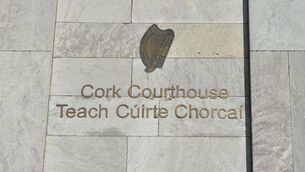Over 50 prosecutions for coercive control since 2019

Paul Moody arriving at Dublin Circuit Criminal Court for his sentence hearing on Tuesday. Moody was convicted of coercive control. Picture: Collins Courts
Over 50 prosecutions for coercive control have been taken since the offence was introduced in January 2019, figures show.
It follows the conviction on Tuesday of Garda Paul Moody for coercive control.














